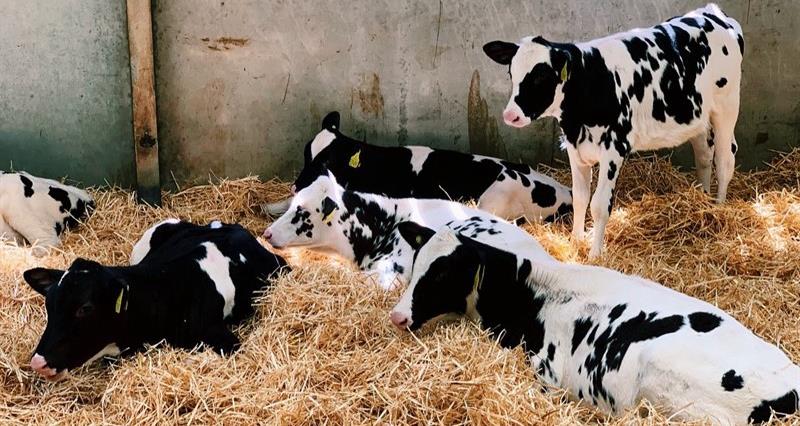Over the past few years, the industry has made huge progress in bringing down the number of bull calves euthanised. This has been achieved through advances in sexed semen effectiveness and increased uptake, as well as exploring and developing wider market opportunities.
The industry is committed to making further progress in this area, with the NFU and AHDB taking the lead on producing the GB Dairy Calf Strategy, alongside collaboration from industry stakeholders including Red Tractor, retailers and other key players in the supply chain.
from the AHDB website.
Key areas of the strategy include:
- Rear all calves with care
- Encourage responsible breeding strategies through farm assurance
- Better communication of market requirements
- Increase the number of bio-secure routes for TB-affected herds
- Supporting Britain’s beef sector and promoting our product
- Opening up new pathways and supply chain opportunities for dairy bred calves
- Innovation and supporting R&D
National dairy board chair Michael Oakes said: “While the practice of routinely euthanising calves is not widespread, it has been a cause of debate both within and outside the industry and something we need to address. We have seen considerable successes and progress over recent years in rearing dairy bred calves for the beef market, but there is no denying that these changes will comes with significant challenges at a farm level.
“»ĘĽŇ»ŞČËis committed to taking the lead on this and guiding members through these changes. It is vital that dairy farmers have the support and knowledge needed when it comes to rearing and marketing calves if we are to enable the transition to a future where all calves are utilised into strong supply chains.”

Richard Findlay, national livestock board chair, added: “This could be a fantastic opportunity for the beef sector and allow us to increase our self-sufficiency. Joined up and collaborative working with the dairy sector will be essential to make sure that strong, healthy, well-bred calves with good genetics are produced so that we can continue to supply the high-quality beef the British people want and expect.”
For more information read our GB Dairy Bred Calf Strategy – Q&A Document.Ěý
The Q&A covers key topics including on farm queries around management and breeding, supply chain and markets as well as the Red Tractor calf standards.
You can also find more information on the AHDB website:
NFU and AHDB webinar for members
»ĘĽŇ»ŞČËand AHDB hosted a webinar on 17 February 2021 to update dairy and livestock members on the GB Dairy Calf Strategy.
The webinar introduced producers to the strategy and delved into what dairy farmers will need to undertake on farm to move towards meeting the industry commitment of eliminating the routine euthanasia of calves by 2023. The farmer-led panel gave practical accounts, from both a dairy and beef producer perspective, of how they have overcome challenges and adapted their businesses successfully.
One of the speakers included dairy farmer and chair of the NFU Cymru Milk Board, Abi Reader, who discussed her experience with bTB on her farm, how it can impact calf rearing and what dairy producers will need to consider if they are struck down with bTB.
The webinar also covered the new Red Tractor calf standards, what this means on farm and how farmers can prepare.
